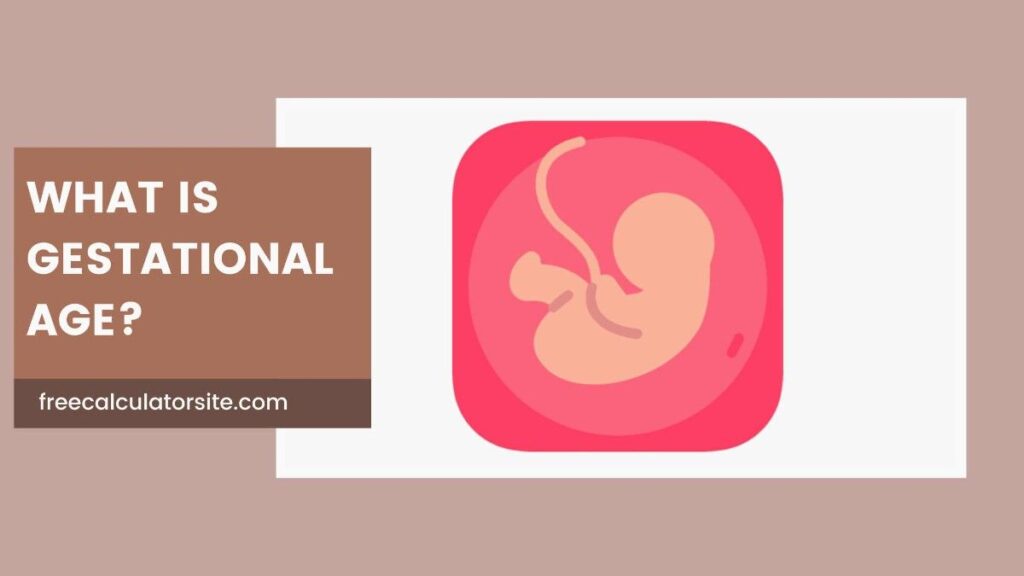
When it comes to pregnancy and childbirth, understanding gestational age is crucial for tracking the growth and development of the baby.
But what exactly is gestational age, and why is it so important?
This article will delve into the concept of gestational age, how it’s calculated, its significance in prenatal care, and the role it plays in ensuring the health of both the mother and baby.
Understanding Gestational Age
Gestational age refers to the age of an embryo or fetus calculated from the first day of the mother’s last menstrual period (LMP).
It’s a measure of how far along a pregnancy is, expressed in weeks and days, and typically ranges from 38 to 42 weeks for a full-term pregnancy.
The concept of gestational age is pivotal in the medical world, as it helps healthcare providers monitor the baby’s development, predict the due date, and identify any potential risks.
How is Gestational Age Calculated?
Gestational age is usually calculated in one of the following ways:
Last Menstrual Period (LMP):
- The most common method is to calculate gestational age from the first day of the mother’s last menstrual period. This is because the exact date of conception is often difficult to pinpoint, but most women can recall the start date of their last period.
- Since ovulation typically occurs around two weeks after the start of the menstrual cycle, the gestational age includes these two extra weeks. As a result, when a woman is said to be 6 weeks pregnant, her baby has actually been developing for about 4 weeks.
Ultrasound:
- An ultrasound is another method to determine gestational age, especially if the date of the last menstrual period is unknown or uncertain. During an ultrasound, healthcare providers measure the size of the embryo or fetus to estimate how many weeks into the pregnancy the woman is.
- This method is particularly accurate during the first trimester when the rate of fetal growth is relatively uniform across different pregnancies.
Physical Examination:
- In some cases, gestational age can be estimated through a physical examination by assessing the size of the uterus. However, this method is less precise than using LMP or ultrasound.
Why is Gestational Age Important?
Understanding gestational age is crucial for several reasons:
Tracking Development:
- Knowing the gestational age helps healthcare providers monitor the baby’s development and compare it to expected growth milestones. For example, by a certain week, they expect to see certain organs or body parts forming. This tracking ensures that the pregnancy is progressing as expected.
Determining the Due Date:
- Gestational age plays a vital role in estimating the baby’s due date. Full-term pregnancies typically range from 38 to 42 weeks, and having a clear understanding of gestational age helps healthcare professionals predict when the baby is likely to be born.
Guiding Prenatal Care:
- Different stages of pregnancy require different levels of care, and gestational age helps healthcare providers plan appropriate prenatal tests and treatments. For instance, some screenings and tests, like the nuchal translucency scan or glucose tolerance test, are recommended at specific gestational ages.
Identifying Premature or Post-Term Births:
- A gestational age of fewer than 37 weeks is considered preterm, while an age beyond 42 weeks is termed post-term. Understanding gestational age helps healthcare providers manage these scenarios effectively, ensuring the health and safety of both the baby and mother.
Gestational Age Milestones: What Happens Week by Week?
The journey from conception to birth is divided into three trimesters, each with its own set of milestones:
First Trimester (Weeks 1-12):
- In the early weeks, the fertilized egg implants itself in the uterus, and the embryo begins to develop. By the end of the first trimester, the baby’s major organs have started to form, and the heartbeat can be detected via ultrasound. Gestational age calculations during this stage are crucial as they lay the foundation for the rest of the pregnancy.
Second Trimester (Weeks 13-26):
- During this phase, the baby grows rapidly. The facial features develop, and the baby starts to move, though the movements might not yet be felt by the mother. By around 20 weeks, an ultrasound can often determine the baby’s gender. Accurate gestational age helps ensure that growth and development milestones are on track.
Third Trimester (Weeks 27-40):
- The baby continues to grow in weight and size, and their organs mature. By 37 weeks, the baby is considered full-term, and the lungs are usually developed enough for life outside the womb. Monitoring gestational age helps healthcare providers prepare for labor and delivery.
Gestational Age vs. Fetal Age: Are They the Same?
One common source of confusion is the difference between gestational age and fetal age.
While gestational age measures the time since the first day of the last menstrual period, fetal age measures the actual age of the developing baby from the point of conception.
Fetal age is typically two weeks shorter than gestational age. Understanding this distinction is important when interpreting medical advice and information related to pregnancy.
Also Read: What is Developmental Age?
Factors That Can Affect Gestational Age Accuracy
Several factors can influence the accuracy of gestational age calculations:
Irregular Menstrual Cycles:
- Women with irregular menstrual cycles may find it challenging to determine their last menstrual period accurately, leading to potential errors in gestational age calculation.
Late or Early Ovulation:
- Not all women ovulate exactly two weeks after their period starts. Variations in ovulation timing can affect the accuracy of gestational age estimates based solely on LMP.
Inaccurate Ultrasound Measurements:
- While ultrasounds are generally reliable, factors such as the baby’s position or the experience of the technician can impact the accuracy of gestational age estimation.
The Role of Gestational Age in Complications and Interventions
Gestational age plays a crucial role in identifying and managing potential complications:
- Premature Birth: Babies born before 37 weeks are considered premature and may face challenges such as breathing difficulties, underdeveloped organs, and low birth weight.
- Post-Term Pregnancy: Babies born after 42 weeks may face risks such as reduced amniotic fluid, larger birth size, and increased risk of labor complications.
- Intrauterine Growth Restriction (IUGR): If a baby is smaller than expected for its gestational age, it could indicate potential health issues, and interventions may be necessary.
Conclusion
Gestational age is a fundamental concept in prenatal care, providing essential insights into the development and health of the baby throughout pregnancy.
By accurately calculating and understanding gestational age, healthcare providers can better monitor the baby’s growth, plan necessary interventions, and ensure that both the mother and baby receive the best possible care.
Whether you’re an expectant parent, a healthcare professional, or simply curious about pregnancy, knowing about gestational age offers valuable insights into one of life’s most miraculous journeys.

Akash Singh is a finance enthusiast who shares valuable insights on various calculators.
